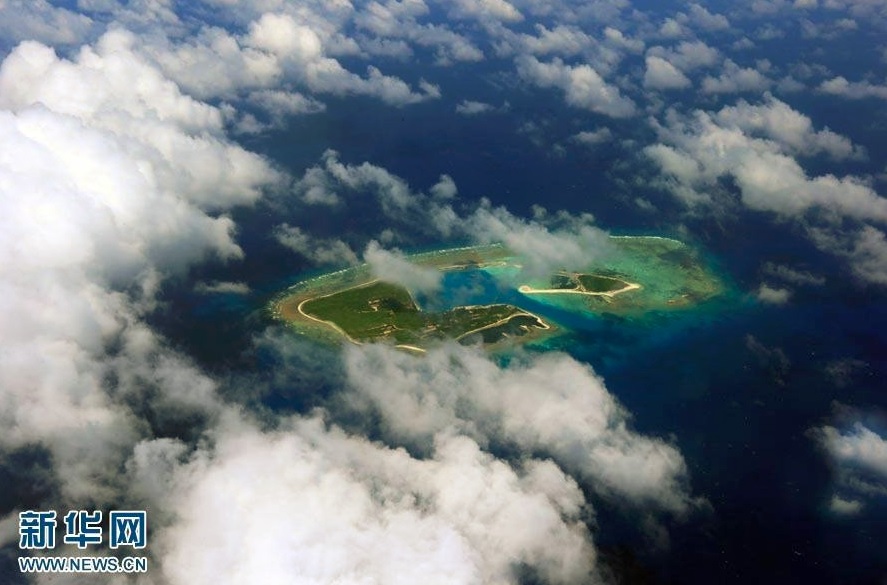The award of the South China Sea arbitration will be issued at 5 pm Beijing time Tuesday. The US and Japan have claimed that relevant countries, including China, should comply with the arbitration result. They stand in sharp confrontation with China, which has announced that the award would be "nothing but a piece of paper." Whether the arbitration will lead to a severe geopolitical crisis has come under the global spotlight.
The Western media is analyzing how China will respond to the award. Bloomberg posited three scenarios from Beijing, from benign to moderately aggressive or aggressive. It considers that China establishing an South China Sea Air Defense Identification Zone (ADIZ) would be moderately aggressive and towing away the Philippine warship grounded at Ren'ai Reef and construction on Huangyan Island as aggressive.
We believe the Chinese government must have made a series of contingency plans to deal with subsequent actions. What actions China may take on Huangyan and Ren'ai, and whether China will announce a South China Sea ADIZ depends on the reactions of the Philippines to the arbitration result and the degree of US and Japanese provocations.
So far, none of the concerned parties want military confrontation. But all are ratcheting up military preparations. The South China Sea has been clouded by unprecedented tensions. It's uncertain where the situation will head to.
Chinese society pays close attention to the South China Sea situation. After the the post-arbitration wrestling begins, the most important thing for China is to show the outside world the solidarity of its society. For one thing, Chinese society has full confidence in the country's diplomatic and maritime strength; for another, no matter what price China has to pay for the wrangling, all the Chinese will squarely accept it.
The Chinese people and government share the same interests and responsibilities. We should not only safeguard territorial sovereignty, but also make the utmost efforts to maintain peace in China's periphery, prolonging China's strategic opportunities for China's rise.
The South China Sea is a big arena. China will devote its varied resources there. China in the past was weak. It could only express determinations through demonstrations or a few activists visiting its own islands in the South China Sea. But now it has multiple means at its disposal. It has become a formidable competitor that deserves respect. No power in the world could split a united China. As long as we stick together, provocateurs are doomed to fail.
Source:Global Times
Related:
China calls for dialogues to resolve disagreement - CCTV News - CCTV.com English http://english.cctv.com/2016/07/12/VIDEjonBZ4jsADHvtfqTLiBu160712.shtml
http://t.cn/R5DT1ML
Japan to grow ‘aggressive’ in sea disputes
Concerns have been raised over the possibility that Japan may play a more aggressive role in the South and East ...
Unlawful arbitration cannot negate China's sovereignty over South China Sea: People’s Daily
The
arbitration case is actually a trap set by the US and the Philippines
in which the arbitral tribunal has played the role of an accomplice.
South China Sea arbitration invalid, law experts say
The tribunal has explained the case in an irresponsible way and set a
bad precedent, according to experts and scholars from around the world.
Washington’s outsider position undercuts its message as it urges China to respect global maritime no[Read it]
| Quotable quotes on S. China Sea arbitration: tribunal's arbitration is unlawful |
Related posts:
Dialogue 07/10/2016 Differing views on South China Sea China
enhances maritime law enforcement China established Sansha City
four...
Jun 29, 2016 ... South China Sea arbitration abuses international law, threatens world .... in
maintaining a relatively stable international order after World War II.
Jun 6, 2016 ... Dialogue 06/05/2016 South China Sea & Sino-US ties - CCTV ... Arbitral tribunal
abusing its power .... US containing a rising Chinese power.

 “Who is the real saboteur of international law?” the editorial outlined the history and legal basis involved in the issue.
“Who is the real saboteur of international law?” the editorial outlined the history and legal basis involved in the issue.






 Like
mahjong: The current world situation is like the Chinese game of
mahjong which has four players with a limited number of chips. If one
player is the persistent winner, he or she ends up with all the chips
and the game ends.
Like
mahjong: The current world situation is like the Chinese game of
mahjong which has four players with a limited number of chips. If one
player is the persistent winner, he or she ends up with all the chips
and the game ends. Winners and losers in the global economy of 2025
Winners and losers in the global economy of 2025